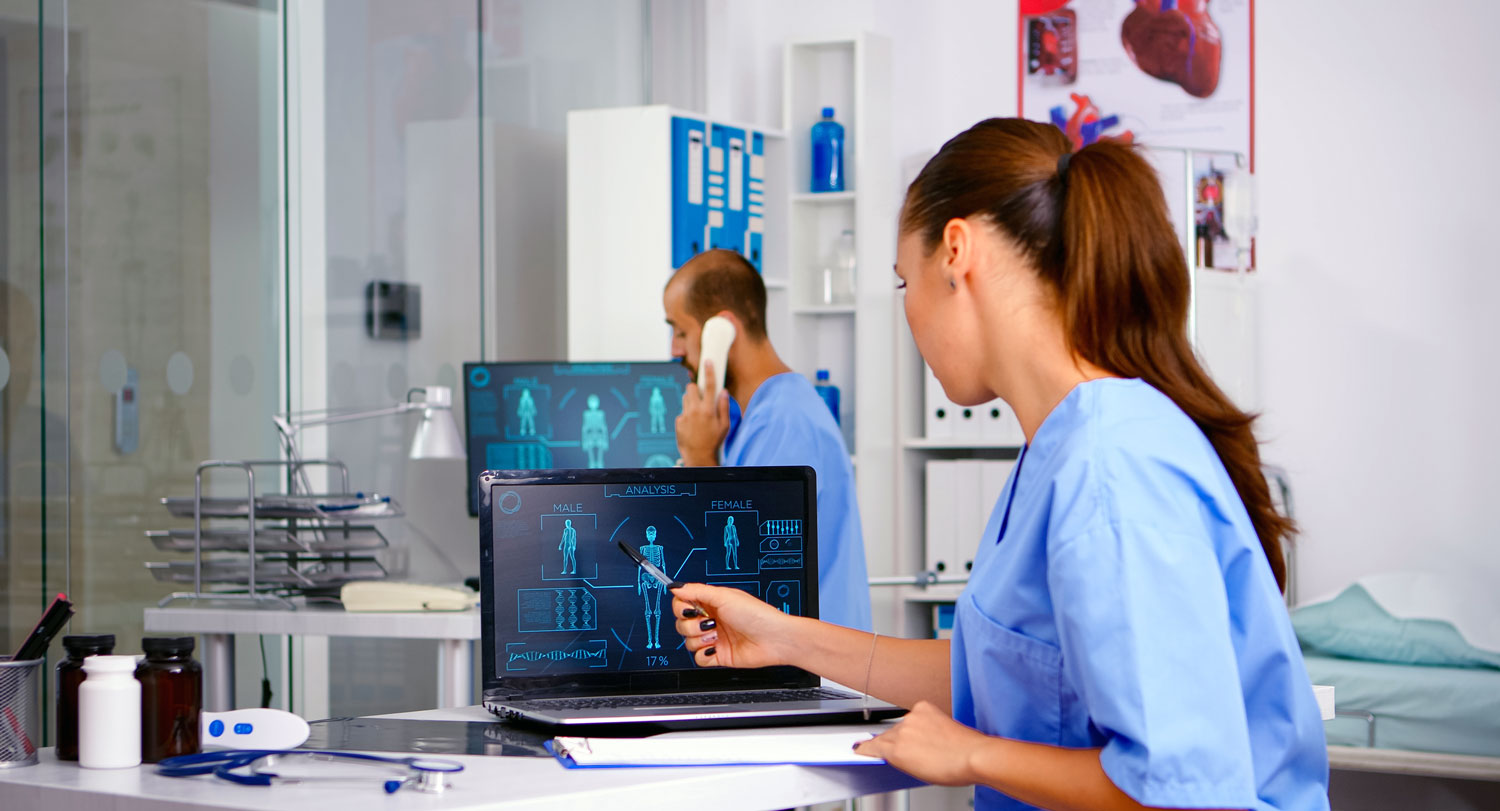
What if your doctor could try out a medical treatment on you — without actually affecting you?
Of course, that’s not possible. But it would be if the treatment was conducted not on you, but on your digital twin.
Welcome to the world of digital twins, artificial intelligence and health care. A team of USC scientists is using a $3.4 million grant to develop new technology for personalized medical treatment and more accurate medical diagnoses. USC faculty members from medicine, chemistry and mathematics are leading various aspects of the five-year project funded by the National Science Foundation’s Established Program to Stimulate Competitive Research (EPSCoR). (USC’s portion of the project is part of a $20 million grant that includes researchers at Clemson University.)
The project focuses primarily on building AI-assisted biomedical tools — in the form of apps or software — to serve as a diagnostic and treatment resource for physicians and other health care providers.
“The device would basically be like an AI assistant, prompting a physician to consider different possibilities in a diagnosis or treatment plan,” says Qi Wang, a USC mathematics professor and co-principal investigator of the project. “The device tries to analyze the situation based on all the information the doctor can gather — and from the knowledge base at large, including medical textbooks and research papers.”
A foundational concept of the project involves crafting digital twin models for humans, Qi Wang says. “The digital twin concept has been around for years in industry, but we’re now migrating the idea to medical science.”
“The digital twin concept has been around for years in industry, but we’re now migrating the idea to medical science.”
In an industrial setting, a digital twin is a virtual replica of an object such as an airplane wing or wheel bearing that allows engineers to model outcomes and predict performance over time. A digital twin of an individual human body follows the same concept, inputting myriad physical characteristics to create a virtual model with which a physician could explore various treatment options and better predict health outcomes in the actual patient.
Qi Wang is focused on building digital twin-enabled apps, powered by XAI (explainable artificial intelligence), which helps end users understand and trust the AI’s machine-learning algorithms.
As part of the same grant, Susan Lessner, a professor of cell biology and anatomy at USC’s School of Medicine Columbia, is building a deep-learning imaging app for vascular disease and a digital twin-enabled app for lung cancer therapies.
Chemistry professor Qian Wang is concentrated on enabling faster tests to analyze biomarkers in human blood. His team is synthesizing different nanomaterials to find optimal testing media.
“We want to build a new kind of AI approach for biosensor development,” he says. “The challenge is to make sure the results we get can be presented in a trustworthy way that the clinician can understand, and they can work together with us.”
Qian Wang says the scientific aspect of his research on the project is doable, but other challenges loom.
“This is not as simple as some projects where we’re trying to help clinicians do better detection with, say, a CT scan. What we’re trying to create now is much more complicated,” he says. “The complexity of all the data we’re focused on is one of the key problems we have to address.
“Ultimately, a doctor must understand and trust what we’re building and then use it to assist in bedside decision making,” he says. “The challenge is to make sure the results we get can be presented in a trustworthy way.”
There are still challenges to overcome, but it’s clear that changes are coming to health care — and that the future is pointing toward more customized, personalized treatments enabled by new technologies.